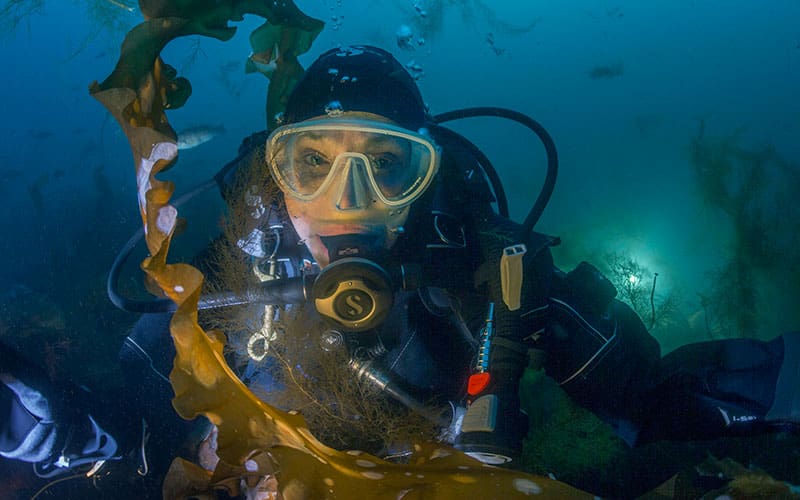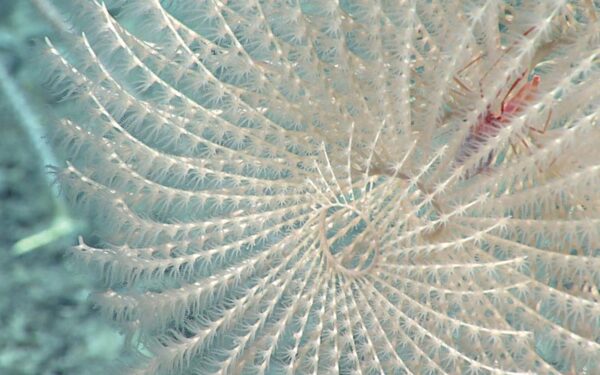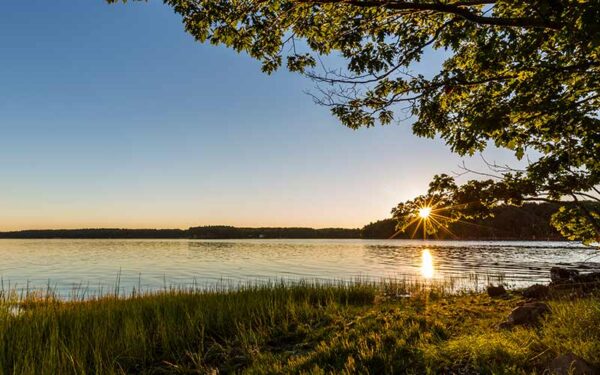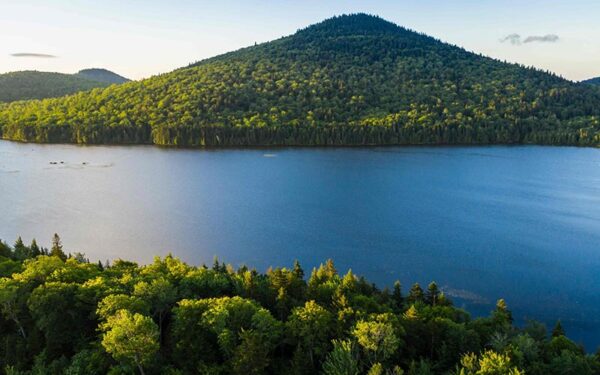
In August, Dr. Sylvia Earle, world-renowned conservationist, oceanographer, National Geographic Explorer-in- Residence, and founder/chairman of Sylvia Earle Alliance/Mission Blue, launched a dive expedition to Cashes Ledge, the underwater mountain range 80 miles off the coasts of Portland.
Dr. Earle joined the expedition to amplify the efforts of CLF and Mission Blue, as well as scientists, business leaders, environmental groups, and faith leaders, in calling for the White House to declare Cashes Ledge a Marine National Monument.
What was it like to dive on Cashes Ledge?
Diving on Cashes Ledge was an experience of a lifetime, in a lifetime of amazing underwater experiences. I saw for myself what scientists have been raving about for years – a miraculous mountain peak that comes close enough to sunlight to be crowned with a thriving forest of kelp and a richly diverse assemblage of coastal marine life in the open sea.
What most surprised you about your experience?
It’s so unlikely to have kelp growing out in the open ocean 80 miles from shore. Instead of blowing in the wind, the kelp blows in the currents. I felt like a dancer with these golden silken scarves surrounding me. Fish swam by, found our eyes, and just looked at us. You could almost see the wheels turning minds asking, “What are you doing here?” I thought I went down to look at the fish, but the fish were looking at me!
Why have you declared Cashes Ledge one of your Hope Spots?
Cashes Ledge is the Yellowstone of the North Atlantic. It’s an amazing gathering of fish and other wildlife that wasn’t known outside the fishing community until recent years, when divers and scientists began exploring and documenting the in their nature of this glorious, golden forest. It’s a place that is a natural for permanent protection – full and enduring protection. That’s what a Hope Spot is about. We look at unique areas, special places that harbor diverse forms of life, and seek to protect them for renewal and survival. Taking care of Cashes Ledge is a symbol of hope – not just hope for the fish, but for us, too.
What do you wish more people understood about the world’s oceans?
Life itself depends on the ocean – and most of life on Earth is under the ocean’s surface. Look at the Earth from outer space – it’s mostly blue. There’s a lot of talk these days about the green movement, but if there’s no blue, there won’t be any green. We have to care for the ocean as if our lives depend on it, because they in fact do.
What makes you optimistic about the future of our oceans?
Historically we have thought of the ocean as a place to extract things – fish, oil, gas. But now we know that all life depends on taking care of the ocean. The most important thing we extract from the sea is our very existence. Today, we have a chance with the blue United States to give back to the ocean that gives us so much. Taking positive action to protect the ocean and restore its health is an idea whose time has come.




